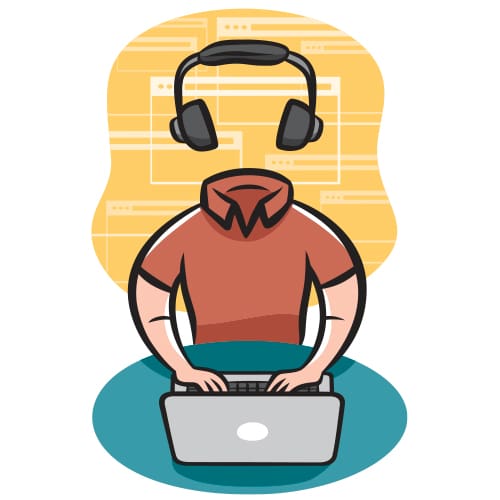
Protect yourself
What’s a VPN and why you should care
Just because you want to spend time online anonymously doesn’t mean you’re a cybercriminal or have something to hide. Regular folks want privacy, too. In fact, you should be vigilant about protecting your privacy.
Unfortunately, simply choosing the “private” or “incognito” mode on your web browser is not enough. While that will delete your history and trackable cookies after your surfing session has ended, you’re still vulnerable because your activity is visible during your time online.
This means that whether you’re surfing at home or on a public Wi- Fi system, such as at a coffee shop, your activity is visible to your internet service provider (ISP), search engines, government agencies, social media sites and other websites you visit. Even in private mode, they can still see your IP address, which provides your approximate whereabouts.
Cloak yourself
The only way to remain truly anonymous is to use a virtual private network (VPN), a small piece of software that conceals your online identity by using encryption technology to secure your connection. Encryption scrambles your data, making it unreadable to anyone who tries to access it, thereby protecting you from snoopers, as well as hackers and other cybercriminals.
Think of a VPN as an underground tunnel, as opposed to the open and visible roads above it, where everyone can see all the information flowing across the various lanes of traffic on the internet. Your ISP may know that you’re using a VPN, but it cannot see or track you once you enter the VPN tunnel.
How to choose a VPN
There are hundreds of VPN providers, and sometimes a VPN service is already built into a cybersecurity suite you use, so look into that first.
As for choosing a stand-alone VPN, be sure to read reviews from both tech critics and consumers. Research how many server locations the company has (the more, the better); look for one with reliable connectivity (so you’re not kicked off mid-browsing session), and check compatibility with the devices you use and how many you’re allowed to install them on (such as an iPhone, iPad, Android, Windows, Mac or Chromebook). Look for a VPN with good customer service.
Finally, be leery of “free” VPNs, as the service needs to be monetized somehow—which, paradoxically, could mean selling customer data.
Generally speaking, you choose which server you want to connect to (usually seen as cities on a map) and the VPN will securely connect you.—MS
Costco Connection: You’ll find a selection of desktop, laptop, tablet computers in Costco warehouses and at Costco.ca.

Twitter @marc_saltzman

